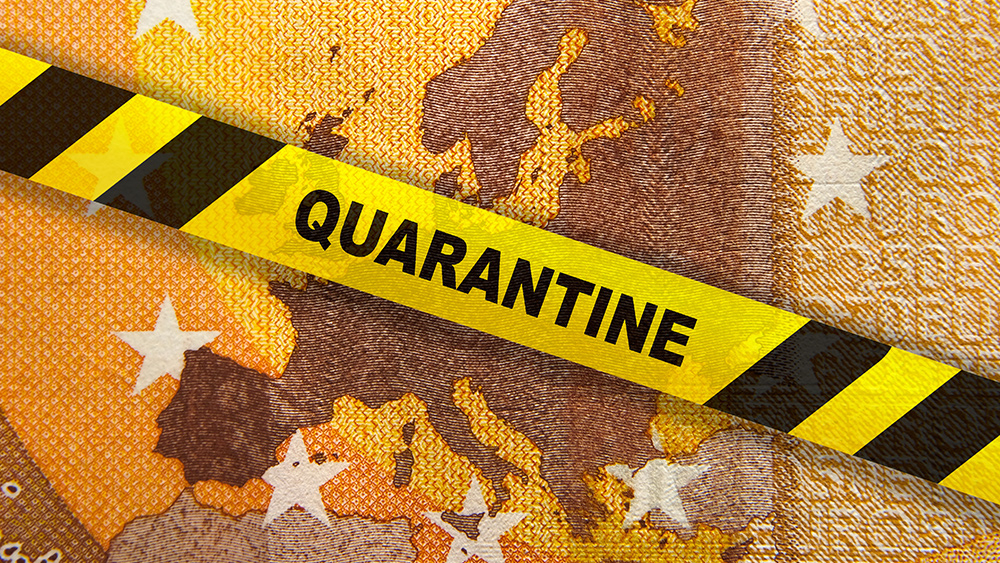Belgium looking to lift coronavirus restrictions despite the highest death rate in the world
04/28/2020 / By Ralph Flores

Belgium will start easing its coronavirus restrictions from May 4, making it the latest European country to emerge from the coronavirus lockdown.
The country has recorded 7,094 deaths – the world’s highest rate per million – with a total caseload of 43,134, according to figures reported on April 26 by Johns Hopkins University. More than half of the deaths recorded by Belgium, however, have occurred in care homes, with over 96 percent of cases being suspected than confirmed.
On March 18, Belgium imposed a cordon sanitaire in an effort to curb the spread of the virus, allowing only food shops, pharmacies and home improvement stores to remain open.
Prime Minister Sophie Wilmes announced on April 24 that the country will ease restrictions in phases during the course of the month. She stressed, however, that the country could tighten restrictions or delay easing if a flareup in cases occurs.
“It is now time to look to the future,” she added. “But COVID has not disappeared, the virus is still with us and it is dangerous for the population. It is absolutely essential that the safety measures are respected during the phase-out period.”
For Belgium to fully emerge from the lockdown, Wilmes noted that the country would need to conduct up to 30,000 tests per day. Contact tracing would be carried out by a new team.
Opening the country in stages
Under the new guidelines, hospitals can start performing elective procedures on May 4. In addition, nonessential shops like haberdashers will be permitted to reopen, and certain sports – tennis, kayak and go fishing – will be allowed.
People will also be allowed to socialize with two people not living with them, provided that it is done outside and social distancing is followed; those who will ride on public transportation will have to wear masks.
The week after, most shops – except for hairdressers and other close-contact professions – will be allowed to reopen under strict social distancing measures. (Related: The coronavirus is likely 56 to 100 times MORE DEADLY than the flu; any attempt to end the lockdowns without precautions will result in catastrophe.)
On May 18, people will be allowed to host small gatherings at home, visit museums and go to a hairdresser. Residents will also be allowed to travel locally to the coast and hilly, wooded forests. Schools will also reopen, provided that each class has no more than 10 students.
Cafes, restaurants and zoos, as well as some tourist attractions, will be the last to reopen on June 8.
Move similar to neighbors
A number of European countries have already announced plans to ease their lockdown. Last week, Germany allowed smaller stores, including bookstores and car and bicycle dealers, to reopen, while the Czech Republic ended restrictions on free movement on Friday.
In France, Prime Minister Edouard Philippe will present the government’s plan to relax lockdown measures – which have been in place since March 17 and is set to be lifted on May 11 – to parliament this week.
Denmark, the first country in Europe to ease restrictions, has implemented new restrictions in the capital city of Copenhagen after people breached social distancing measures and partied on Islands Brygge, a popular waterfront location.
Italy, the hardest-hit country in Europe, counted its fewest deaths in nearly six weeks on April 25. In a statement, Prime Minister Giuseppe Conte said that the country will start lifting its restrictions from May 4.
“It is reasonable to expect that we will apply it from May 4,” he wrote in a Facebook post.
“I wish I could say: let’s reopen everything. Immediately. We start tomorrow morning … But such a decision would be irresponsible.”
Learn more about the ongoing coronavirus pandemic at Pandemic.news.
Sources include:
Tagged Under: Belgium, coronavirus, covid-19, deaths, Europe, Fatalities, Flu, infections, lockdown, outbreak, pandemic, quarantine, social distancing, superbugs, virus



















